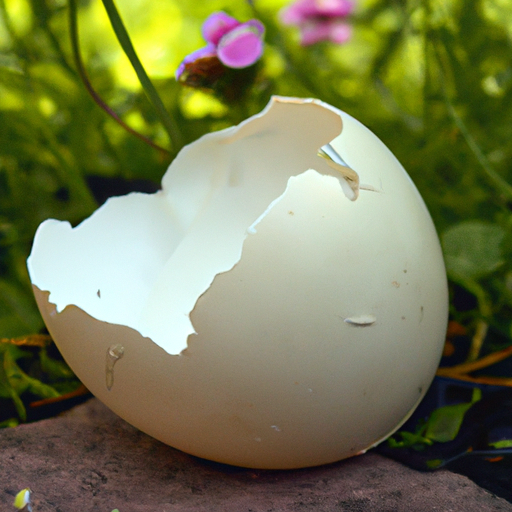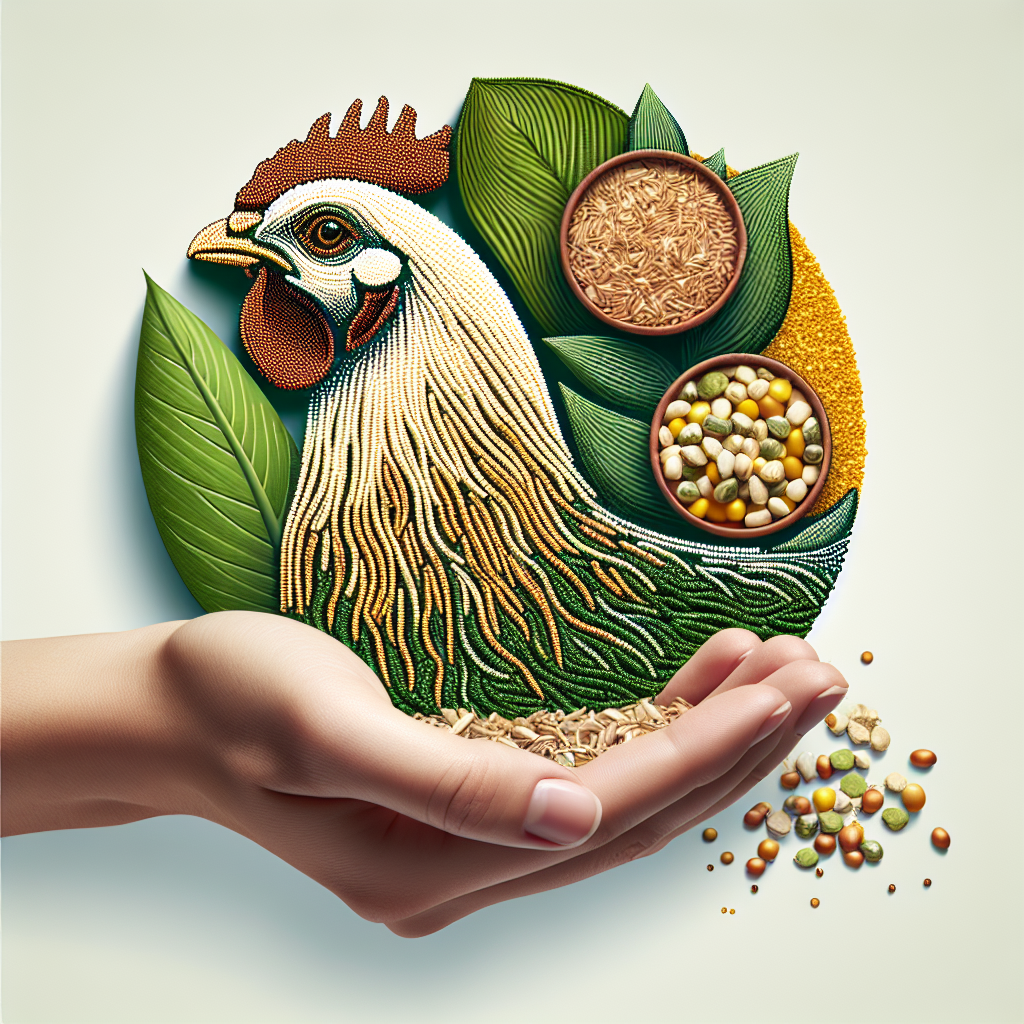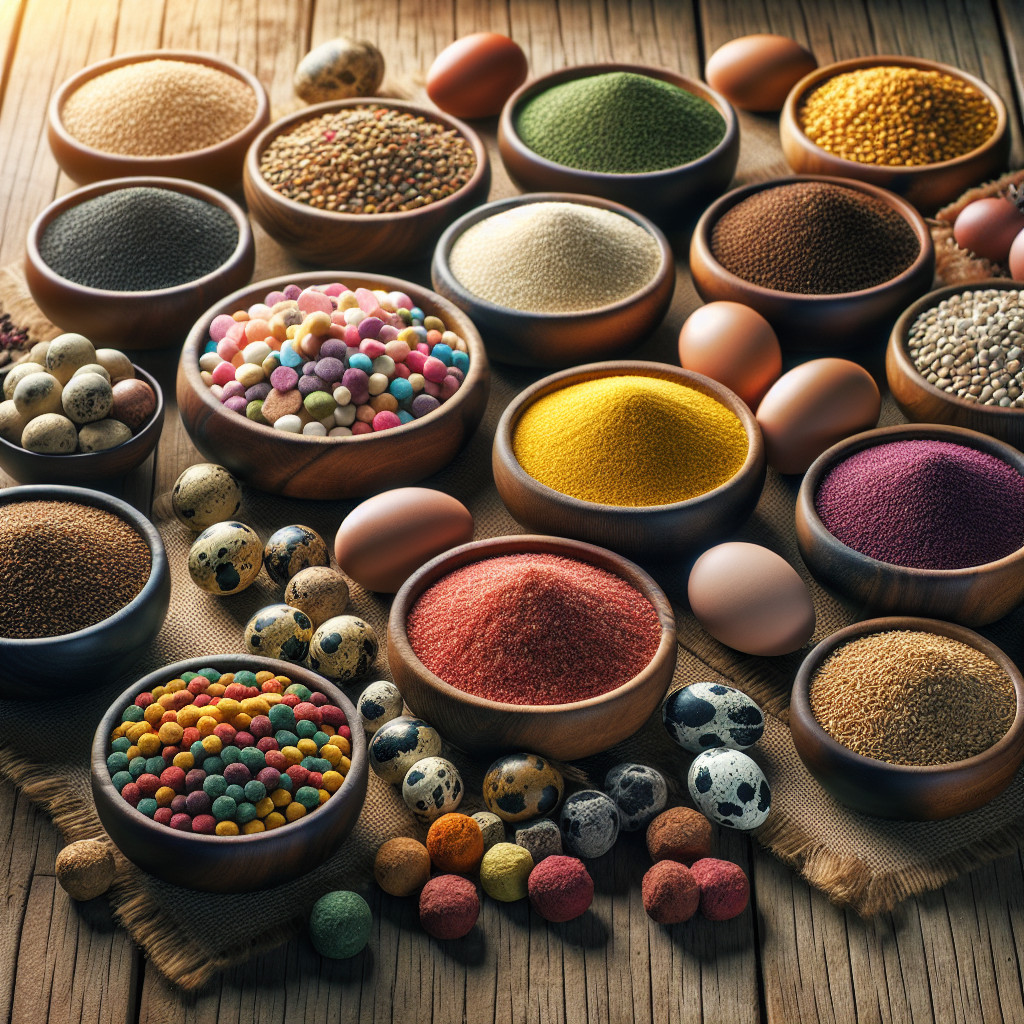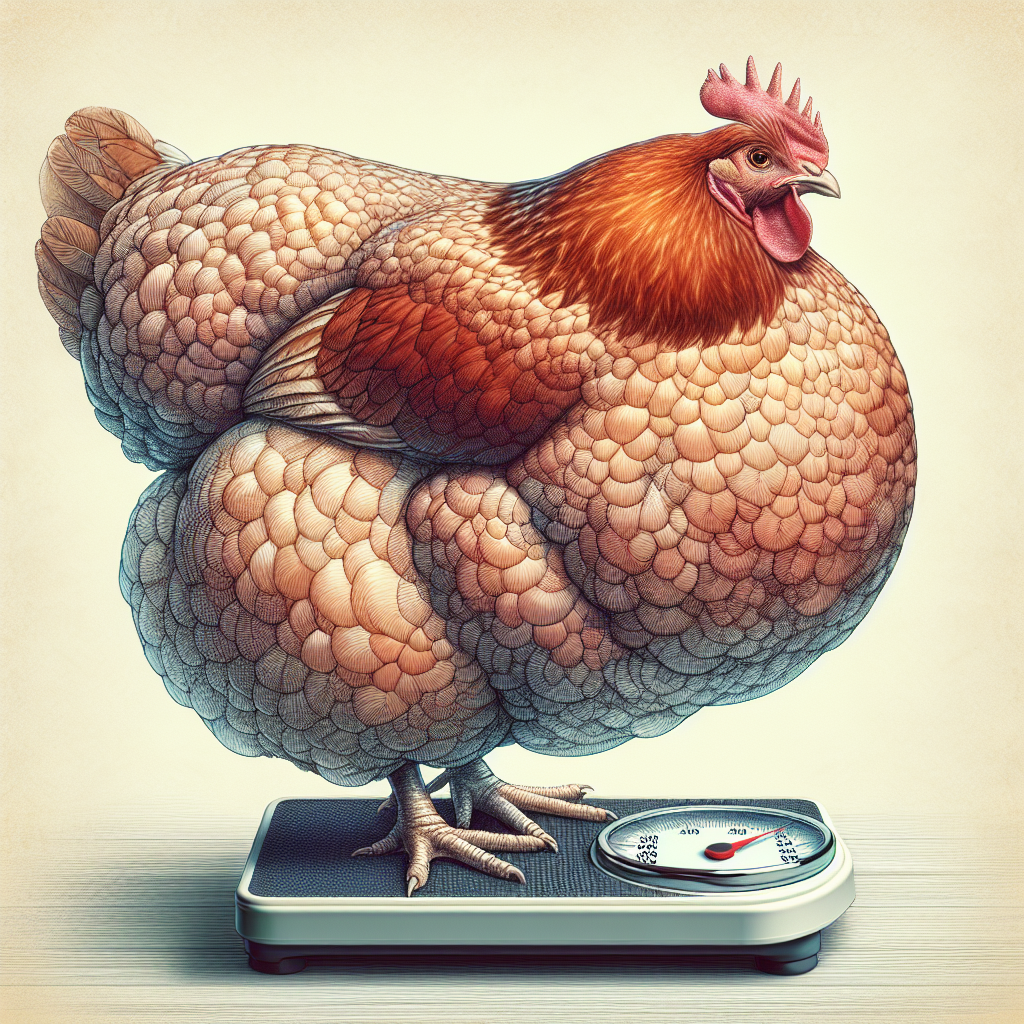Are you wondering about the best natural sources of calcium for your laying hens? Look no further! This article provides a comprehensive overview of the various natural sources of calcium that will keep your hens healthy and productive. From eggshells to oyster shells, we’ve got you covered with all the information you need to ensure your feathered friends receive the right amount of calcium for strong shells and overall well-being. So, let’s get started and discover the fantastic natural sources of calcium that nature has to offer for your beloved hens.
Sources of Calcium for Laying Hens
Laying hens have specific dietary needs, and one of the essential nutrients they require is calcium. Calcium plays a crucial role in several aspects of a hen’s health, including bone strength and eggshell formation. In order to ensure that your hens receive an adequate amount of calcium, it is important to provide them with a balanced diet that includes a variety of natural sources of calcium.
1. Calcium in Laying Hen Diets
1.1. Calcium Requirement for Laying Hens
Laying hens have higher calcium requirements compared to other poultry. On average, a laying hen needs around 4-5 grams of calcium per day to maintain optimal health and egg production. However, it is important to note that the calcium requirements may vary depending on the breed, age, and stage of production of the hen.
1.2. Relationship between Calcium and Egg Quality
Calcium plays a vital role in the formation of eggshells. Insufficient calcium intake can lead to thin or weak eggshells, making them more prone to breakage. Providing an adequate amount of calcium in the diet ensures that hens are able to produce high-quality eggs with strong and durable shells.
2. Importance of Calcium for Laying Hens
2.1. Bone Health
Calcium is essential for maintaining strong and healthy bones in laying hens. Hens that do not receive enough calcium in their diet may suffer from various bone-related issues, such as weak bones, brittle bones, or even fractures. Adequate calcium intake ensures that hens have the necessary nutrients to support their skeletal structure and overall bone health.
2.2. Eggshell Formation
The formation of eggshells is a complex process that involves the deposition of minerals, including calcium, onto the eggshell membrane. Calcium is transported from the hen’s bloodstream to the shell gland, where it is used to form the hard outer layer of the eggshell. Without sufficient calcium, the eggshells may become thin, deformed, or even completely absent.
2.3. Muscle Contraction and Nerve Function
Calcium is also essential for proper muscle contraction and nerve function in laying hens. It plays a crucial role in transmitting signals between nerve cells and ensuring smooth muscle coordination. Adequate calcium levels in the body help prevent muscle cramps, twitching, and spasms, allowing hens to move and behave normally.
3. Natural Sources of Calcium
When it comes to providing calcium to laying hens, there are various natural sources available that can be incorporated into their diet. These sources can be categorized into plant-based and animal-based options.
3.1. Plant-Based Sources
Plant-based sources of calcium include dark leafy greens, legumes, cruciferous vegetables, kelp and seaweed, berries and citrus fruits, and herbs and spices. Dark leafy greens, such as kale, spinach, and collard greens, are particularly rich in calcium and can be fed to hens either raw or cooked. Legumes like soybeans and lentils are also excellent sources of calcium, along with being protein-rich.
3.2. Animal-Based Sources
There are also animal-based sources of calcium that can be included in a laying hen’s diet. Crushed eggshells are a popular and easily accessible option. They can be washed, dried, and crushed into small pieces, then added to the feed or offered free-choice to the hens. Additionally, chicken bones and fish bones can also be a good source of calcium when cooked and ground into a fine powder before adding them to the feed.
4. Calcium-Rich Plants and Vegetables
4.1. Dark Leafy Greens
Dark leafy greens, such as kale, spinach, and collard greens, are not only rich in essential vitamins and minerals but also high in calcium. These greens can be grown in a garden or purchased from local markets, ensuring a fresh and nutritious source of calcium for your hens.
4.2. Legumes
Legumes, including soybeans, lentils, and peas, are not only a great source of plant-based protein but also provide a decent amount of calcium. Adding legumes to your hen’s diet can help meet their calcium requirements while providing additional nutritional benefits.
4.3. Cruciferous Vegetables
Cruciferous vegetables, such as broccoli, cauliflower, and cabbage, are known for their health benefits. They are also rich in calcium, making them a valuable addition to a laying hen’s diet. These vegetables can be fed raw or cooked.
4.4. Kelp and Seaweed
Kelp and seaweed are natural sources of calcium and can be added to the feed of laying hens. They are readily available in dried or powdered forms and can help boost the calcium content of the diet.
4.5. Berries and Citrus Fruits
Berries, such as strawberries and raspberries, and citrus fruits, such as oranges and lemons, are not only delicious treats for hens but also provide a moderate amount of calcium. These fruits can be offered as occasional snacks to supplement the hens’ calcium intake.
4.6. Herbs and Spices
Some herbs and spices, such as basil, parsley, and oregano, contain calcium and can be included in the hens’ diet. Fresh or dried, these aromatic additions can provide various health benefits alongside the necessary calcium intake.
5. Calcium-Rich Grains and Seeds
While plants and vegetables are excellent sources of calcium, grains and seeds can also contribute to meeting a laying hen’s calcium requirements.
5.1. Flaxseeds
Flaxseeds are a rich source of omega-3 fatty acids and calcium. They can be added to the hen’s diet in ground or whole form, providing a boost of nutrition along with the necessary calcium intake.
5.2. Sesame Seeds
Sesame seeds are not only a popular ingredient for human consumption but also a good source of calcium. They can be sprinkled onto feed or incorporated into homemade treats to ensure that hens receive an adequate amount of calcium.
5.3. Chia Seeds
Chia seeds are known for their high omega-3 fatty acid content and are also a good source of calcium. These small seeds can be fed to hens either whole or soaked in water to enhance their digestibility.
5.4. Hemp Seeds
Hemp seeds contain an array of essential nutrients, including calcium. They can be added to the diet of laying hens as a supplement, helping to meet their calcium requirements while providing other beneficial nutrients.
5.5. Quinoa
Quinoa is a popular grain known for its high protein content and is also a good source of calcium. Cooked quinoa can be included in the hens’ diet as a healthy and nutritious addition.
5.6. Amaranth
Amaranth is a gluten-free grain that is rich in calcium. It can be cooked and offered to hens as part of their diet, ensuring they receive the necessary calcium for optimal health.
6. Bones and Shells
Bones and shells are another natural source of calcium that can be utilized to meet the dietary needs of laying hens.
6.1. Crushed Eggshells
Crushed eggshells are a readily available and inexpensive source of calcium. They contain essential minerals that hens need for eggshell formation. The eggshells should be cleaned, dried, and crushed into small pieces before being added to the hens’ feed.
6.2. Chicken Bones
Chicken bones, particularly from cooked or boiled chicken, can also be a source of calcium. After boiling the bones to remove any meat or fat, they can be ground into a fine powder and added to the feed. It is important to note that bones should always be cooked before feeding to hens to avoid any potential hazards.
6.3. Fish Bones
Fish bones, such as those obtained from small fish like sardines, can be a rich source of calcium. After cooking and deboning the fish, the bones can be ground into a fine powder and added to the feed of laying hens.
7. Dairy Products
Dairy products are known for their high calcium content and can be included in a laying hen’s diet.
7.1. Yogurt
Yogurt is a rich source of calcium and probiotics. It can be given to hens as a treat or mixed with their regular feed. Yogurt not only provides calcium but also supports gut health and digestion.
7.2. Cheese
Cheese is another dairy product that can be beneficial for laying hens. It contains a significant amount of calcium and can be fed in small quantities as a part of a balanced diet.
7.3. Milk
Milk is a natural source of calcium and can be added to the diet of laying hens. However, it should be noted that not all hens are able to digest lactose effectively, so milk should be given sparingly and monitored for any adverse reactions.
8. Insects and Worms
Insects and worms provide a natural source of calcium, along with other essential nutrients, for laying hens.
8.1. Mealworms
Mealworms are a favorite treat for hens and are an excellent source of protein and calcium. They can be purchased or even grown at home, ensuring a readily available calcium-rich option for your flock.
8.2. Earthworms
Earthworms are not only a valuable source of protein but also contain calcium. Hens that are allowed to free-range will often forage for earthworms, helping to supplement their calcium intake naturally.
9. Calcium Supplements for Laying Hens
In addition to natural sources of calcium, calcium supplements can also be used to ensure that hens receive an adequate amount of this essential nutrient.
Calcium supplements specifically formulated for laying hens can be added to their feed or offered separately as a free-choice option. These supplements are designed to provide a concentrated dose of calcium, helping to meet the hens’ dietary requirements.
It is important to follow the manufacturer’s instructions and consult with a poultry nutritionist to determine the appropriate dosage and frequency of calcium supplementation based on your flock’s specific needs.
10. Balancing Calcium Intake
Maintaining the correct balance of calcium intake is crucial for laying hens’ overall health and egg production. Here are some key considerations for ensuring optimal calcium intake and utilization:
10.1. Maintaining the Correct Ratio
The ratio of calcium to phosphorus is important for proper calcium utilization. The ideal calcium-to-phosphorus ratio for laying hens is typically around 2:1 or 3:1, depending on the breed and age of the hens. It is essential to ensure that the calcium and phosphorus levels in the diet are appropriately balanced to maximize calcium absorption and utilization.
10.2. Monitoring Shell Quality
Regularly monitoring the quality of the eggshells can help detect any imbalances in calcium intake. Thin or weak eggshells may indicate a calcium deficiency, while excessively thick or rough shells may suggest an oversupply of calcium. Adjustments to the diet and calcium supplementation can be made based on the observed shell quality to maintain optimal calcium levels.
10.3. The Role of Vitamin D
Vitamin D is crucial for calcium absorption in the body. Ensuring that laying hens receive adequate sunlight exposure allows them to produce their own vitamin D. Additionally, certain commercial feeds and supplements may contain added vitamin D to support calcium absorption. Consult with a poultry nutritionist to determine if vitamin D supplementation is necessary for your flock.
In conclusion, providing natural sources of calcium is essential for maintaining the health and productivity of laying hens. A balanced diet that includes calcium-rich plants, vegetables, grains, seeds, bones, shells, dairy products, insects, and worms can help meet their calcium requirements. Additionally, calcium supplements and careful monitoring of calcium intake and shell quality can ensure that your hens receive the optimal amount of calcium for strong bones and high-quality eggs.




